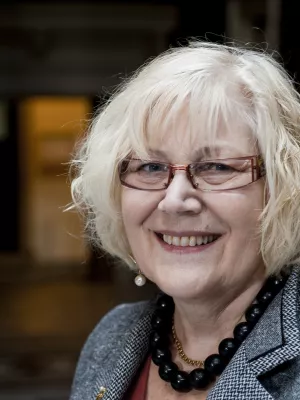
Ingalill Rahm Hallberg
Professor emerita

The experience of being next of kin to an older person in the last phase of life.
Author
Summary, in English
Objective:The aim of the study was to investigate the experience of being next of kin to an older person in the last phase of life as narrated after the older person's death.Method:Qualitative interviews were performed with the next of kin (n = 17) to people aged 75 years and older who had recently died and had received help and/or care from the municipality in the last phase of life. Eleven women and six men participated, of whom seven were spouses, nine were children, and one was a grandchild. The interviews were analysed using qualitative content analysis.Results:The experience of the next of kin could be understood as being a devoted companion during the transition toward the inevitable end, embracing the categories of living in the shadow of death; focusing on the needs of the dying person, making adjustments to everyday life; feeling the major responsibility; struggling with the health and social care system; and gaining strength from support.Significance of results:Being next of kin to an old person at the end of life means being a devoted companion during the transition toward the inevitable end, including the feeling of bearing the major responsibility and the need to be acknowledged by professionals. This study points to the importance of having access to professional care when it is needed, to complement and support the next of kin when his or her own resources and strength falter. This also includes support to enable the next of kin to remain involved in the care of his or her loved ones, thereby fulfilling their own wishes.
Department/s
- Department of Health Sciences
Publishing year
2010
Language
English
Pages
1-10
Publication/Series
Palliative & Supportive Care
Issue
Mar 3
Links
Document type
Journal article
Publisher
Cambridge University Press
Topic
- Nursing
Status
Published
ISBN/ISSN/Other
- ISSN: 1478-9515

